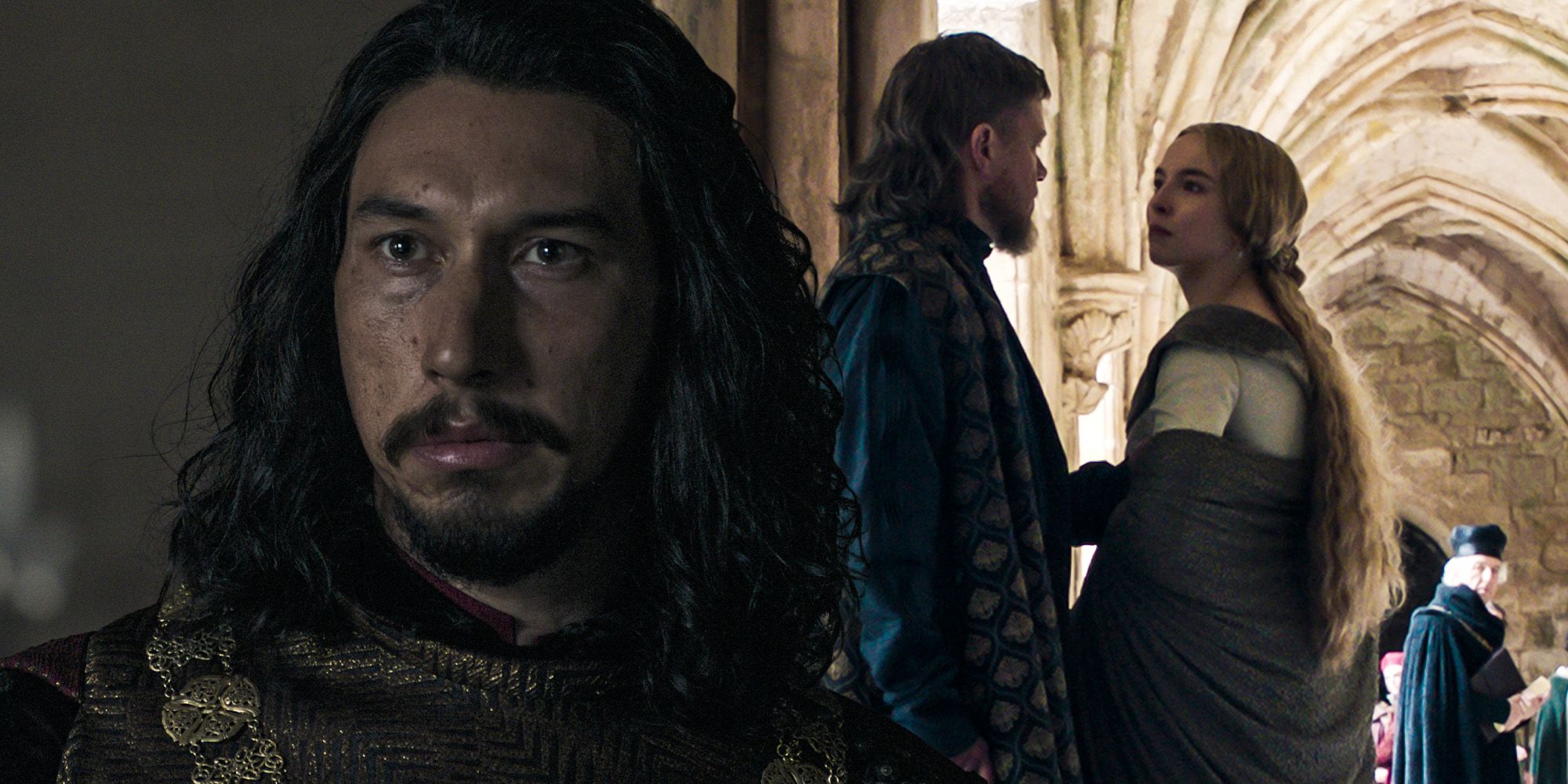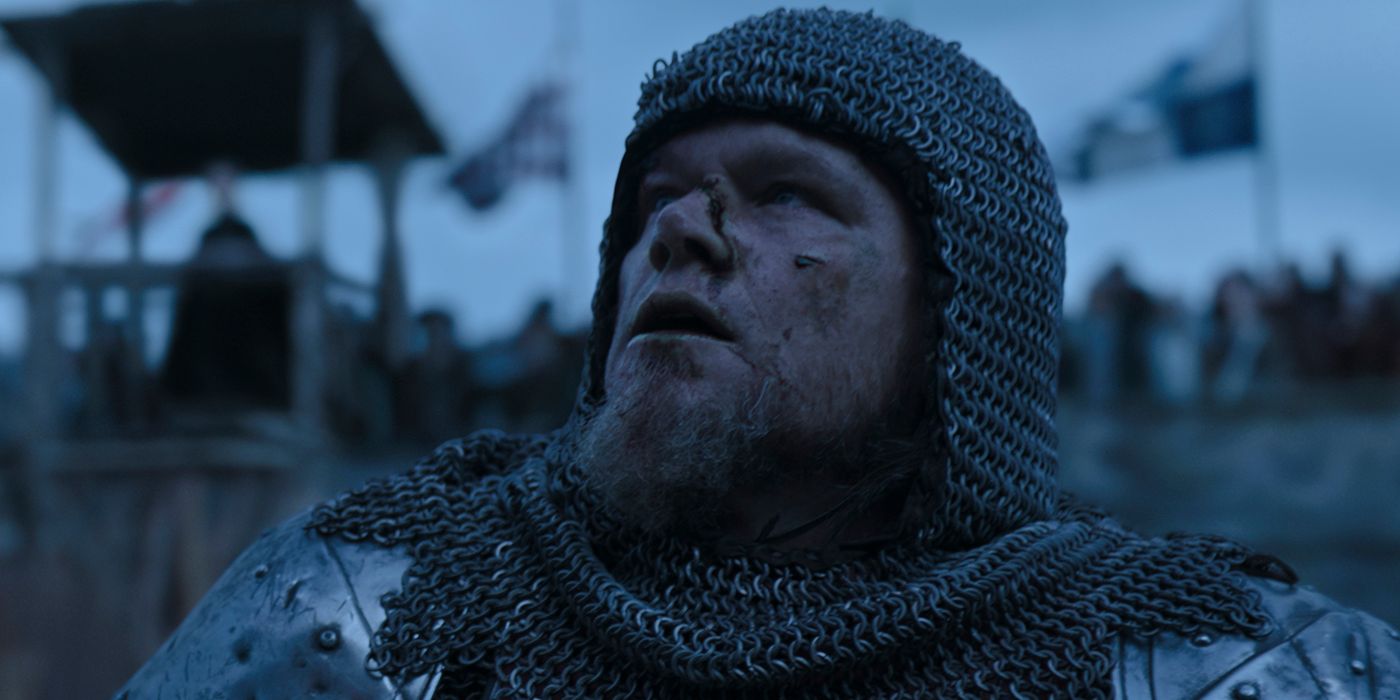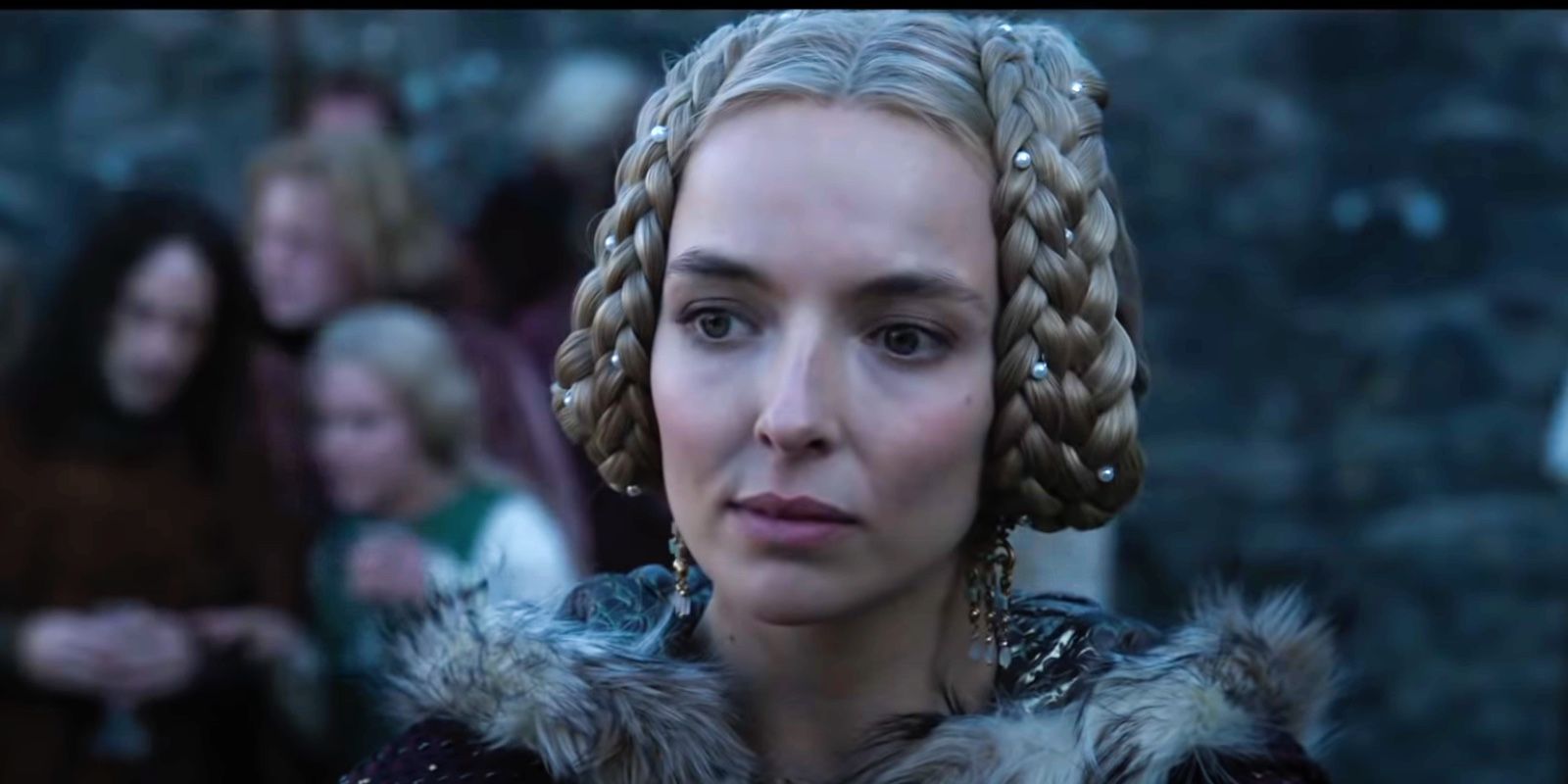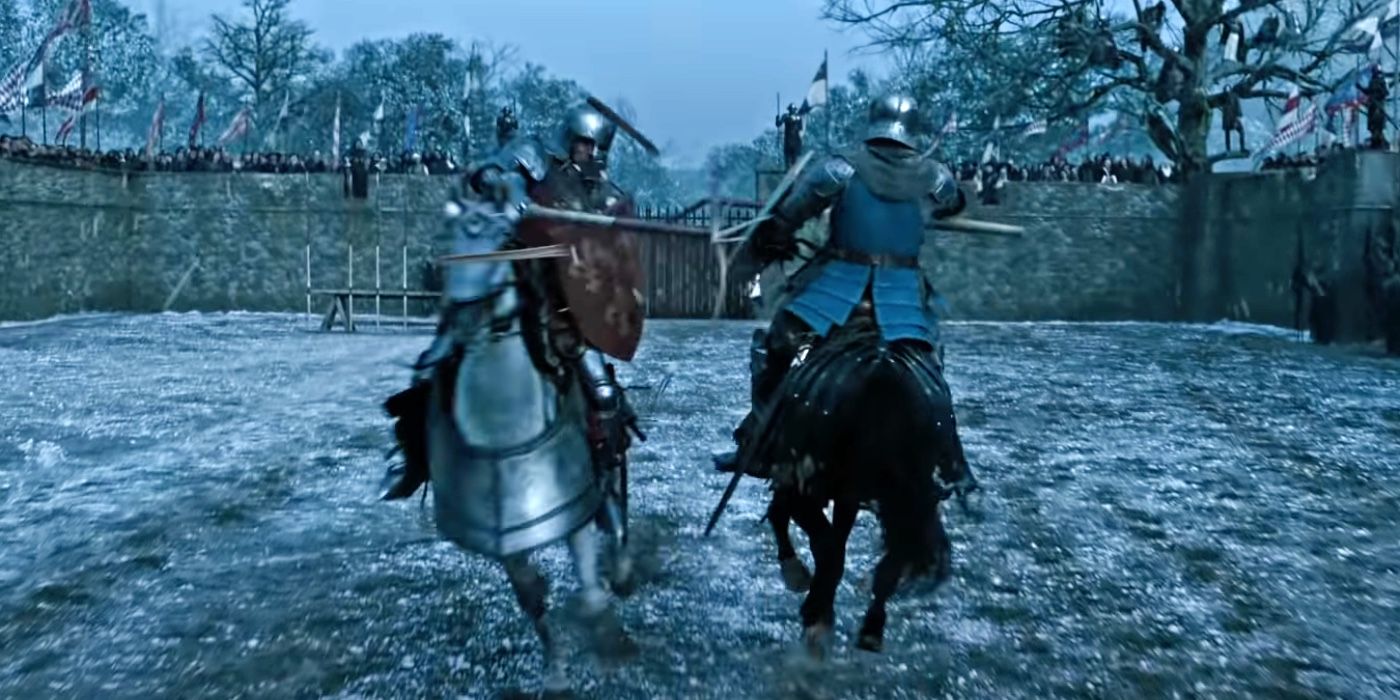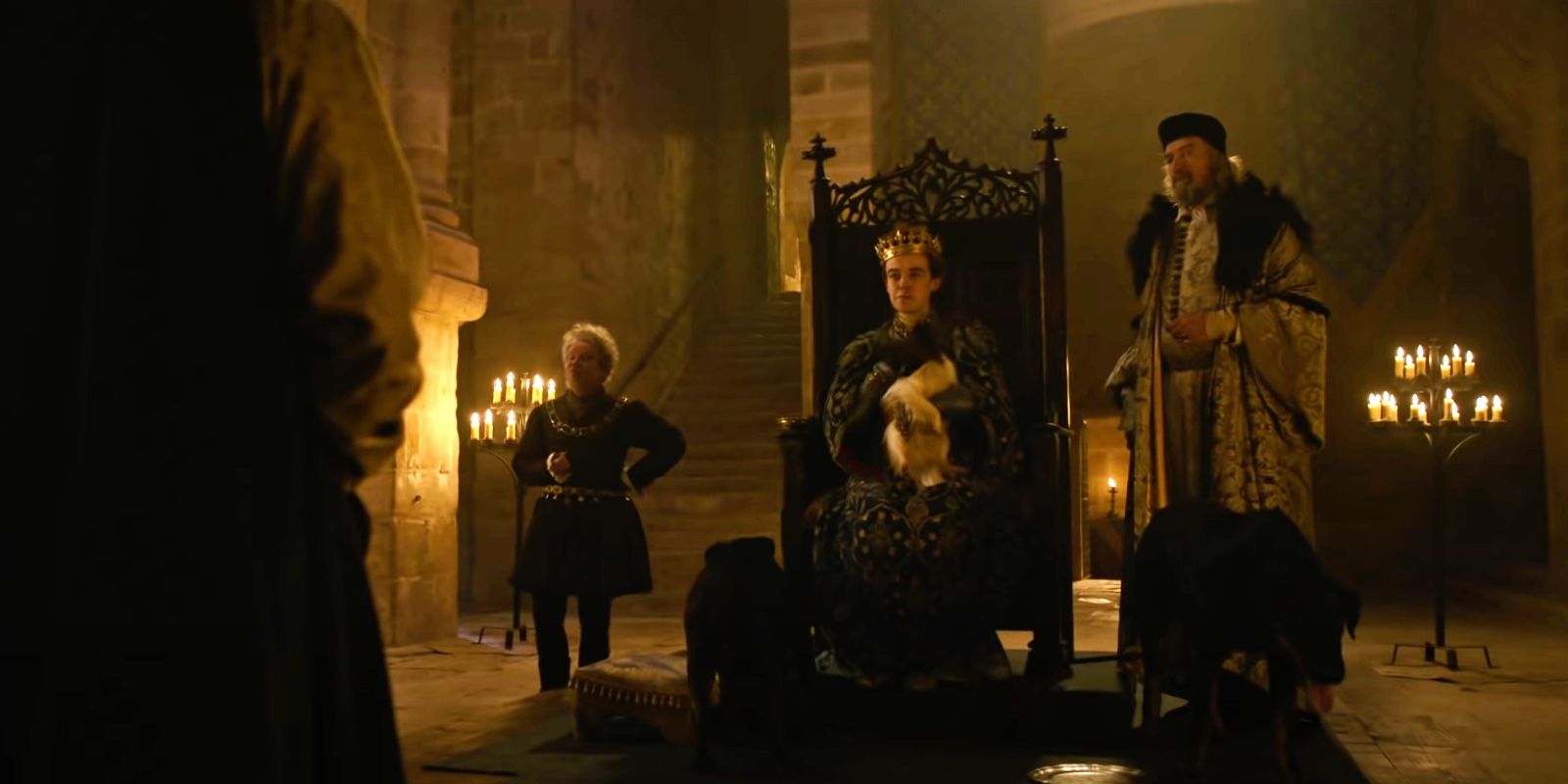Ridley Scott is scheduled to have a few new movies coming out within the next year, including the long-awaited historical drama The Last Duel. Along with House of Gucci, The Last Duel is Scott’s first directorial feature since All the Money in the World and the sci-fi Ridley Scott movie that was Alien: Covenant in 2017, leaving audiences eager to see his filmmaking back in action. Scott’s new movie is adapted from the book The Last Duel: A Story of Trial by Combat in Medieval France by Eric Jager, telling the real-life story of a 14th-century duel between a French knight and his squire after the former accuses the latter of raping his wife.
With the movie's controversial content at its basis, it surprised many studios that Disney never sold the production rights. Nonetheless, Disney realized how much studios were trying to grab the movie rights, so they went ahead adding the Medieval film and securing Scott as its director. The Last Duel was originally scheduled for theatrical release in January 2021, but the COVID-19 pandemic caused significant production delays, moving the now official release date to October 15, 2021.
The Last Duel will signify the return of frequent collaborators Ben Affleck and Matt Damon, the latter of which plays the lead role as knight Jean de Carrouges in the movie. Further cast members include Adam Driver in Damon’s opposing role as the squire Jacques Le Gris, Killing Eve actress Jodie Comer as Jean’s wife, and Alex Lawther as King Charles VI. As Ridley Scott tackles the momentous 14th century battle to the death, here’s everything we know about the true story behind The Last Duel.
The Last Duel's Time Period: Hundred Years War Explained
The Last Duel is set in 14th century France, with the specific date of the climactic duel taking place on December 29, 1386. The plot takes place in Medieval Europe at the time when the Hundred Years War was only 50 years into its 116-year timeline. One of the bloodiest and longest battles in history, akin to Viking battles, the Hundred Years War consisted of a series of conflicts between England and France, primarily over claims to the French crown by the French House of Valois and the English House of Plantagenet.
As the war continued, the conflict evolved into nationalist sentiments that further divided Western European nations and a struggle for wider power. Five generations of kings from the rival families sought to take the crown and broad control of Europe, contributing to a prolonged sense of nationalism that separated unity within Western Europe and relying on the Middle Ages’ notion of chivalry in war. As viewers wait to find out where The Last Duel ranks among Ridley Scott movies, it certainly takes place in the second generalized phase of the war at the end of the Caroline war, which saw King Charles V die and his 11-year-old son Charles VI ascend to the throne in 1380. It wasn’t until 1453 when the English were defeated and France kept control over its own crown, though it marked the end of the traditionally interweaved French and English monarchies.
The Last Duel True Story: Marguerite de Carrouges' Accusation
Jean de Carrouges’ wife was a controversial figure as the daughter of Robert de Thibouville, a Norman lord who had notably sided against multiple French kings in territorial disputes. Carrouges married her in hopes of an heir and attempted to use his newfound claim to his father-in-law’s property to win back a piece of land from his rival Jacques Le Gris (Adam Driver). The claim went to court against Count Pierre who owned the property and gave it to Le Gris, though after Carrouges lost the lawsuit, his reputation among Pierre’s court declined and his feud with Le Gris grew. After two more failed attempts at growing his territorial claim, Carrouges blamed Le Gris for his defeats. About a year later, the men reconnected and vowed to end their feud, whereafter Carrouges introduced Le Gris to his wife.
After a series of French defeats in the Hundred Years War, Carrouges returned home broke and defeated while Le Gris became more wealthy and developed a womanizing reputation. On a day when Marguerite was left home alone without her mother or servants, a rarity in the Middle Ages for noblewomen, Le Gris apparently showed up at her house with a claim that he loved her desperately. She protested, so Le Gris forced his way into her house and inquired about having an affair. When she again refused, he violently raped her with assistance from his friend Adam Louvel. He claimed he would kill her if she told anyone, so she stayed silent until her husband returned home, whereafter she confessed to him and a counsel what happened with Le Gris.
Jean de Carrouges vs Jacques Le Gris: What Happened In Real Life?
After Count Pierre acquitted Le Gris on all charges and accused Marguerite of dreaming up the entire affair, Carrouges appealed to the young King Charles VI himself. Carrouges believed he would not find another fair criminal trial, so he requested a trial by combat to the death wherein the surviving dueller is deemed by God to be the rightful claimant. The preliminary trial’s judges couldn’t decide who was guilty, so the case moved to one of trial by combat, a once common practice in France that had become quite rare in the late 13th century.
The duel between Carrouges and Le Gris became the spectacle for all of Paris, with hundreds of citizens coming to watch at an official arena with King Charles VI turning it into an event within his series of parties and celebrations. The men mounted their horses on the field with an ax, dagger, armor, longsword, and lance each, going through four rounds of charges on horseback before killing each other’s steeds and moving the climactic Hamilton-style duel on foot. Le Gris stabbed Carrouges in his thigh, prompting Carrouge to retaliate with animal strength as he pinned Le Gris to the ground and repeatedly stabbed him with a sword that only dented the armor. Carrouges angrily tore off Le Gris’s faceplate and demanded he admits his guilt, to which Le Gris responded that in the name of God, he was innocent. This response created a fury in Carrouges, to which he stabbed Le Gris in the neck and killed him instantly.
Was It Really The Last Duel? When France Banned Dueling
While the event has been remembered as the last duel of France, The Last Duel is not technically an accurate description. Dueling had become pretty uncommon in France by the time Carrouge and Le Gris battled, so it was a rare spectacle featuring notable names that drew in a vast crowd. Ridley Scott's movie documents the last judicial duel permitted by a French king and the Parliament of Paris, but it wasn’t the true last duel of France in the literal sense. Duels were still permitted for nearly two more centuries in France, though they wouldn’t be officially authorized for judicial verdicts under the King and Parliament.
According to Britannica, it wasn’t until the 16th century when Charles IX placed a decree on duels of honor where anyone involved would be put to death, though this wouldn’t deter Parisians. Dueling persisted as a practice in France, and by 1626, King Louis VIII introduced an official edict against duels. The practice slowed in the following centuries, but the actual final duel in France took place in 1967 when two politicians challenged another after exchanging insults. While The Last Duel shows the legal practice in its heyday, it still isn’t France's final duel to date.

